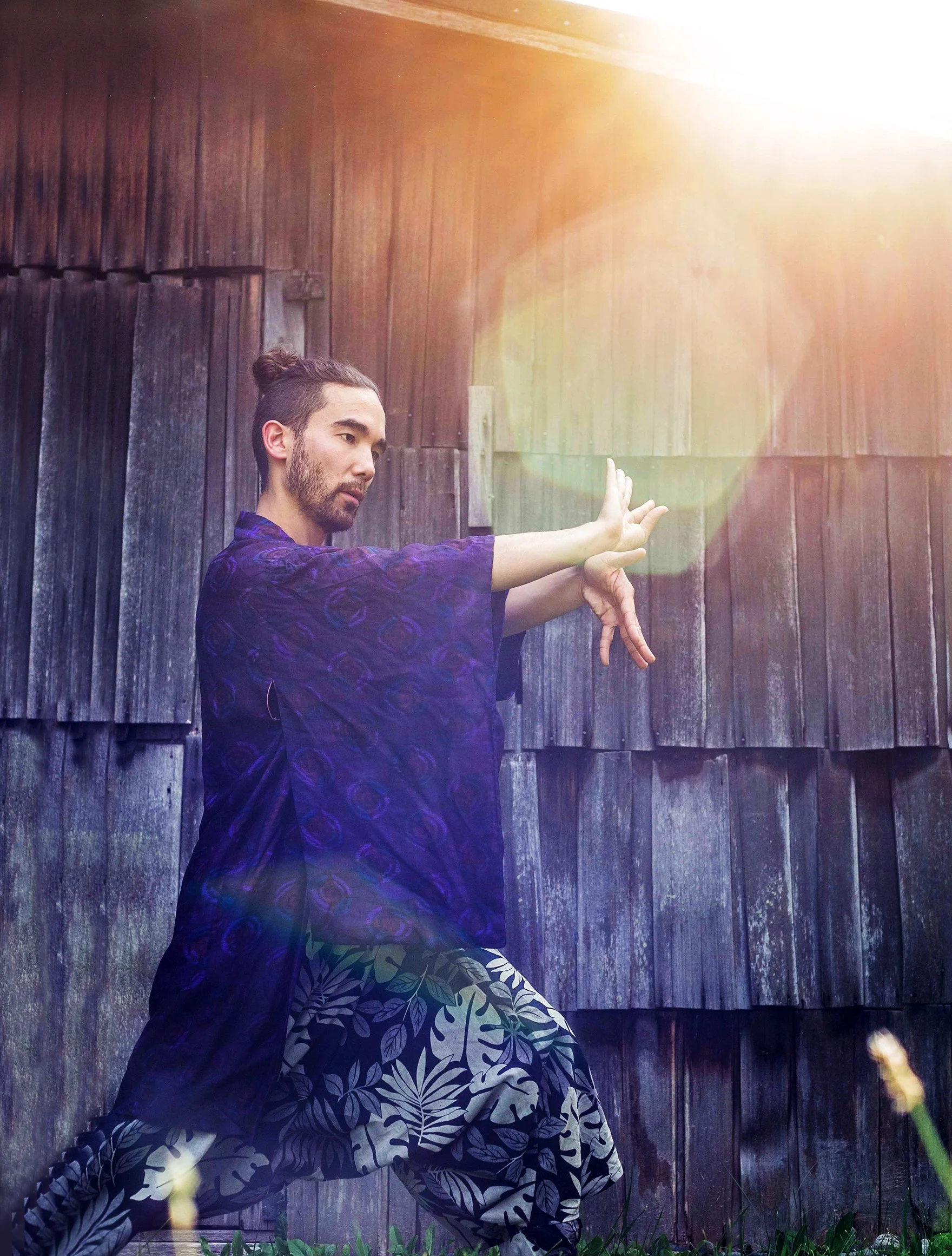Sansei: The Storyteller looks at Japanese-Canadian internment with a light heart
Kunji Mark Ikeda’s multidisciplinary solo show draws on his family’s history
Kunji Mark Ikeda.
The Chan Centre for the Performing Arts presents Sansei: The Storyteller on April 28 at 8 pm at the Telus Studio Theatre
KUNJI MARK IKEDA remembers the first time he ever heard about the Japanese-Canadian internment that began in 1942. He was in his Grade 10 social-studies class in Burnaby, and a single line in the textbook referred to the federal government’s detainment of approximately 21,000 people following the bombing of Pearl Harbour. When he asked his father about it later, his dad responded with a half-hearted chuckle, saying: “If the internment didn’t happen, I wouldn’t be alive, and neither would you.”
Ikeda, the Calgary-based artistic director of Cloudsway Dance Theatre, explains: “My grandparents were done having kids with my aunt and uncle, then were separated for years because of the internment. When they finally got back together and were allowed, they came to Alberta, to Nowheresville. Once they finally had a degree of normalcy, they had a little celebration—they had an oops baby, and that was my dad.”
Flash-forward to 2012, and Ikeda had the opportunity to participate in Making Treaty 7, a major theatrical work that tells the story of the 1877 agreement between Queen Victoria and First Nations of Western Canada, considered to be the founding event of Southern Alberta. At the time, he was digging deeper into his own history; relaying his family’s experiences resonated with so many Indigenous artists around him who could relate to the effects of discrimination and injustice.
“For that group of artists to say this was a story worth sharing ignited something in me,” Ikeda recalls in a phone interview with Stir. “I started to have more conversations with my family, including conversations with my dad, my aunt and uncle—especially with my aunt and uncle. It was the first time as far as I knew that they were okay talking about it. It really opened up all these stories they had been holding in and opened up a new line of communication and respect among my family.”
What began as an exploration of silver linings in the form of a 15-minute solo show at the Expanse Movement Festival in 2013 turned into the full-length Sansei: The Storyteller, which is soon coming to Vancouver. Weaving together dance, theatre, physical storytelling, historical audio, and family memories, the work has gone on to win Best of Fest at the 2014 Calgary International Fringe Festival as well as a Calgary Theatre Critics award nomination and two Betty Mitchell Award nominations for performance and choreography.
It might surprise people to hear that despite the seriousness of the subject matter, Ikeda approaches it with humour. The artist–who has trained extensively with Denise Clarke of One Yellow Rabbit, is a member of the DSW Dance Action Group, and has taught at the University of Calgary and the Rosebud School of the Arts–found that a comical touch was an accessible way for him to take a deep dive into the content and share it with audiences.
“The tagline is ‘a lighthearted look at the Japanese-Canadian internment’,” Ikeda says. “It seems like this paradox, but for me, in finding how much that generation–my aunt, uncle, and father–went through and how, consciously or not, they worked to not pass along hate, to not pass along these negative emotions, to not harbour resentment, especially in the next generation… For me, it was safe material.
“Being able to bring it to life and to light meant the opportunity to tell it in a way that, in my research, I didn’t see anyone else doing: by having access to comedy to talk about it,” he says. “It felt almost like a superpower; I had this opportunity available to tell it through humour. We’ve been conditioned to sit back and accept it passively through media and news, and here’s the doom and gloom. This show is very consciously humorous and engaging in really specific ways to draw in the audience.”
Although it’s not a show with audience participation, viewers are active in the storytelling, Ikeda says. There’s even a chance for spectators to create origami or paper airplanes before the show; those pieces all get added to Ikeda’s set, which consists of folded contributions from all across Canada. “It’s a lovely little suitcase of memories,” Ikeda says. “It’s a literal way for audiences to add to the show.”
His decision to take on a dark chapter in Canadian history in a way that elicits laughter reflects his way of being. “I generally look at the comical side of life,” Ikeda says. “If we’re not playing, what are we doing here? It gives a lightness to the world, to communications, to conversations… It’s more fun.”
A pre-concert talk takes place in the Royal Bank of Canada Cinema at 7:15 pm with Laura Ishiguro, an associate professor in UBC’s department of history and affiliated faculty with Asian Canadian and Asian Migration Studies; she will discuss how Japanese Canadian internment is interconnected to Canadian colonialism.














